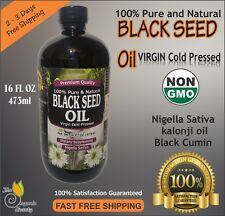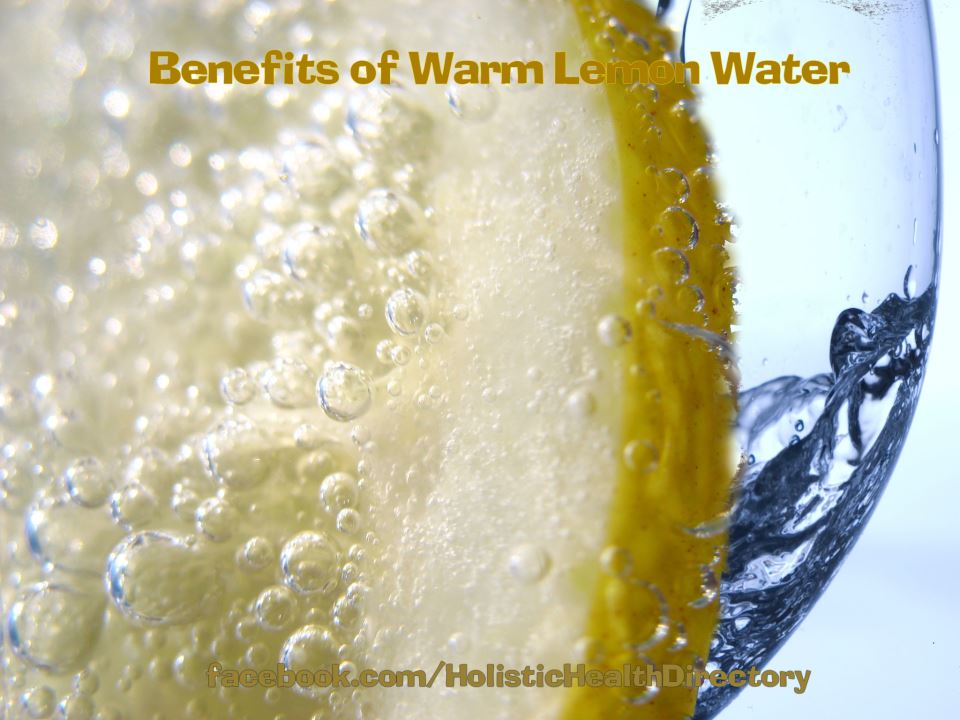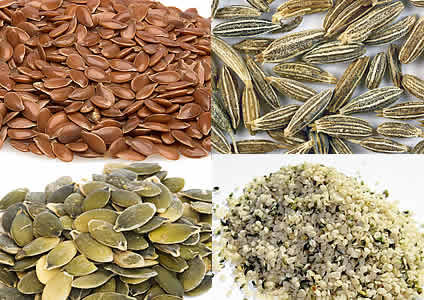
The seeds of the annual flowering plant, Nigella Sativa, have been prized for their healing properties since time immemorial. While frequently referred to among English-speaking cultures as Roman coriander, black sesame, black cumin, black caraway and onion seed, it is known today primarily as black seed, which is at the very least an accurate description of its physical appearance.
The earliest record of its cultivation and use come from ancient Egypt. Black seed oil, in fact, was found in Egyptian pharoah Tutankhamun's tomb, dating back to approximately 3,300 years ago.[i] In Arabic cultures, black cumin is known as Habbatul barakah, meaning the "seed of blessing." It is also believed that the Islamic prophet Mohammed said of it that it is "a remedy for all diseases except death."
Many of black cumin's traditionally ascribed health benefits have been thoroughly confirmed in the biomedical literature. In fact, since 1964, there have been 458 published, peer-reviewed studies referencing it.
We have indexed salient research, available to view on GreenMedInfo.com on our Black Seed (Nigella Sativa) page, on well over 40 health conditions that may be benefited from the use of the herb, including over 20 distinct pharmacological actions it expresses, such as:
- Analgesic (Pain-Killing)
- Anti-Bacterial
- Anti-Inflammatory
- Anti-Ulcer
- Anti-Cholinergic
- Anti-Fungal
- Ant-Hypertensive
- Antioxidant
- Antispasmodic
- Antiviral
- Bronchodilator
- Gluconeogenesis Inhibitor (Anti-Diabetic)
- Hepatoprotective (Liver Protecting)
- Hypotensive
- Insulin Sensitizing
- Interferon Inducer
- Leukotriene Antagonist
- Renoprotective (Kidney Protecting)
- Tumor Necrosis Factor Alpha Inhibitor
Our project has identified over 1600 natural compounds with a wide range of health benefits, and we are only in our first 5 years of casual indexing. There are tens of thousands of other substances that have already been researched, with hundreds of thousands of studies supporting their medicinal value (MEDLINE, whence our study abstracts come, has over 600,000 studies classified as related to Complementary and Alternative Medicine).
Take turmeric, for example. We have identified research indicating its value in over 600 health conditions, while also expressing over 160 different potentially beneficial pharmacological actions. You can view the quick summary of over 1500 studies we have summarized on our Turmeric Research page, which includes an explorative video on turmeric. Professional database members are further empowered to manipulate the results according to their search criteria, i.e. pull up and print to PDF the 61 studies on turmeric and breast cancer. This, of course, should help folks realize how voluminous the supportive literature indicating the medicinal value of natural substances, such as turmeric and black seed, really is.
Black seed has been researched for very specific health conditions. Some of the most compelling applications include:
- Type 2 Diabetes: Two grams of black seed a day resulted in reduced fasting glucose, decreased insulin resistance, increased beta-cell function, and reduced glycosylated hemoglobin (HbA1c) in human subjects.[ii]
- Helicobacter Pylori Infection: Black seeds possess clinically useful anti-H. pylori activity, comparable to triple eradication therapy.[iii]
- Epilepsy: Black seeds were traditionally known to have anticonvulsive properties. A 2007 study with epileptic children, whose condition was refractory to conventional drug treatment, found that a water extract significantly reduced seizure activity.[iv]
- High Blood pressure: The daily use of 100 and 200 mg of black seed extract, twice daily, for 2 months, was found to have a blood pressure-lowering effect in patients with mild hypertension.[v]
- Asthma: Thymoquinone, one of the main active constituents within Nigella sativa (black cumin), is superior to the drug fluticasone in an animal model of asthma.[vi] Another study, this time in human subjects, found that boiled water extracts of black seed have relatively potent antiasthmatic effect on asthmatic airways.[vii]
- Acute tonsillopharyngitis: characterized by tonsil or pharyngeal inflammation (i.e. sore throat), mostly viral in origin, black seed capsules (in combination with Phyllanthus niruri) have been found to significantly alleviate throat pain, and reduce the need for pain-killers, in human subjects.[viii]
- Chemical Weapons Injury: A randomized, placebo-controlled human study of chemical weapons injured patients found that boiled water extracts of black seed reduced respiratory symptoms, chest wheezing, and pulmonary function test values, as well as reduced the need for drug treatment.[ix]
- Colon Cancer: Cell studies have found that black seed extract compares favorably to the chemoagent 5-fluoruracil in the suppression of colon cancer growth, but with a far higher safety profile.[x] Animal research has found that black seed oil has significant inhibitory effects against colon cancer in rats, without observable side effects.[xi]
- MRSA: Black seed has anti-bacterial activity against clinical isolates of methicillin resistant Staphylococcus aureus.[xii]
- Opiate Addiction/Withdrawal: A study on 35 opiate addicts found black seed as an effective therapy in long-term treatment of opioid dependence.[xiii]
If we understand the true nature of the seed, how much life (past, present and future) is contained within it, it will not seem so far-fetched that it is capable of conquering antibiotic resistant bacteria, healing the body from chemical weapons poisoning, or stimulate the regeneration of dying insulin-producing beta cells in the diabetic, to name but only a fraction of black seed's experimentally-confirmed powers.
Moving the mountain of inertia and falsity associated with the conventional concept of disease, is a task well-suited for seeds and not chemicals. The greatest difference, of course, between a seed and a patented synthetic chemical (i.e. pharmaceutical drug), is that Nature (God) made the former, and men with profit-motives and a deranged understanding of the nature of the body made the latter.
The time, no doubt, has come for food, seeds, herbs, plants, sunlight, air, clean water, and yes, love, to assume once again their central place in medicine, which is to say, the art and science of facilitating self-healing within the human body. Failing this, the conventional medical system will crumble under the growing weight of its own corruption, ineptitude, and iatrogenic suffering (and subsequent financial liability) it causes. To the degree that it reforms itself, utilizing non-patented and non-patentable natural compounds with actual healing properties, a brighter future awaits on the horizon. To the degree that it fails, folks will learn to take back control over their health themselves, which is why black seed, and other food-medicines, hold the key to self-empowerment.
[i] Domestication of plants in the Old World (3 ed.). Oxford University Press. 2000. p. 206. ISBN 0-19-850356-3.
[ii] Abdullah O Bamosa, Huda Kaatabi, Fatma M Lebdaa, Abdul-Muhssen Al Elq, Ali Al-Sultanb. Effect of Nigella sativa seeds on the glycemic control of patients with type 2 diabetes mellitus. Indian J Physiol Pharmacol. 2010 Oct-Dec;54(4):344-54. PMID: 21675032
[iii] Eyad M Salem, Talay Yar, Abdullah O Bamosa, Abdulaziz Al-Quorain, Mohamed I Yasawy, Raed M Alsulaiman, Muhammad A Randhawa. Comparative
study of Nigella Sativa and triple therapy in eradication of
Helicobacter Pylori in patients with non-ulcer dyspepsia. Saudi J Gastroenterol. 2010 Jul-Sep;16(3):207-14. PMID: 20616418
[iv] Javad Akhondian, Ali Parsa, Hassan Rakhshande. The effect of Nigella sativa L. (black cumin seed) on intractable pediatric seizures. Med Sci Monit. 2007 Dec;13(12):CR555-9. PMID: 18049435
[v] Farshad Roghani Dehkordi, Amir Farhad Kamkhah. Antihypertensive effect of Nigella sativa seed extract in patients with mild hypertension. Braz J Med Biol Res. 2006 Apr;39(4):421-9. Epub 2006 Apr 3. PMID: 18705755
[vi] Rana Keyhanmanesh, Mohammad Hossein Boskabady, Mohammad Javad Eslamizadeh, Saeed Khamneh, Mohammad Ali Ebrahimi. The
effect of thymoquinone, the main constituent of Nigella sativa on
tracheal responsiveness and white blood cell count in lung lavage of
sensitized guinea pigs. J Ethnopharmacol. 2009 Oct 29;126(1):102-7. Epub 2009 Aug 8. PMID: 19711253
[vii] M H Boskabady, N Mohsenpoor, L Takaloo . Antiasthmatic effect of Nigella sativa in airways of asthmatic patients. Phytomedicine. 2010 Feb 8. Epub 2010 Feb 8. PMID: 20149611
[viii] M Dirjomuljono, I Kristyono, R R Tjandrawinata, D Nofiarny. Symptomatic treatment of acute tonsillo-pharyngitis patients with a combination of Nigella sativa and Phyllanthus niruri extract. Int J Clin Pharmacol Ther. 2008 Jun;46(6):295-306. PMID: 18541126
[ix] Mohammad H Boskabady, Javad Farhadi. The
possible prophylactic effect of Nigella sativa seed aqueous extract on
respiratory symptoms and pulmonary function tests on chemical war
victims: a randomized, double-blind, placebo-controlled trial. J Altern Complement Med. 2008 Nov;14(9):1137-44. PMID: 18991514
[x] Elsayed I Salim, Shoji Fukushima. Chemopreventive potential of volatile oil from black cumin (Nigella sativa L.) seeds against rat colon carcinogenesis. Nutr Cancer. 2003;45(2):195-202. PMID: 12881014
[xi] Elsayed I Salim, Shoji Fukushima . Chemopreventive potential of volatile oil from black cumin (Nigella sativa L.) seeds against rat colon carcinogenesis. Nutr Cancer. 2003;45(2):195-202. PMID: 12881014
[xii] Abdul Hannan, Sidrah Saleem, Saadia Chaudhary, Muhammad Barkaat, Muhammad Usman Arshad. Anti bacterial activity of Nigella sativa against clinical isolates of methicillin resistant Staphylococcus aureus. J Ayub Med Coll Abbottabad. 2008 Jul-Sep;20(3):72-4. PMID: 19610522
[xiii] Sibghatullah Sangi, Shahida P Ahmed, Muhammad Aslam Channa, Muhammad Ashfaq, Shah Murad Mastoi . A new and novel treatment of opioid dependence: Nigella sativa 500 mg. J Ayub Med Coll Abbottabad. 2008 Apr-Jun;20(2):118-24. PMID: 19385474
Source: Written By:Sayer Ji, Founder GreenMedInfo.com

Be sure to look for
100% Pure Black Seed Oil
Cold Pressed Cumin Nigella Sativa
non GMO
Source: Written By:Sayer Ji, Founder GreenMedInfo.com

100% Pure Black Seed Oil
Cold Pressed Cumin Nigella Sativa
non GMO

